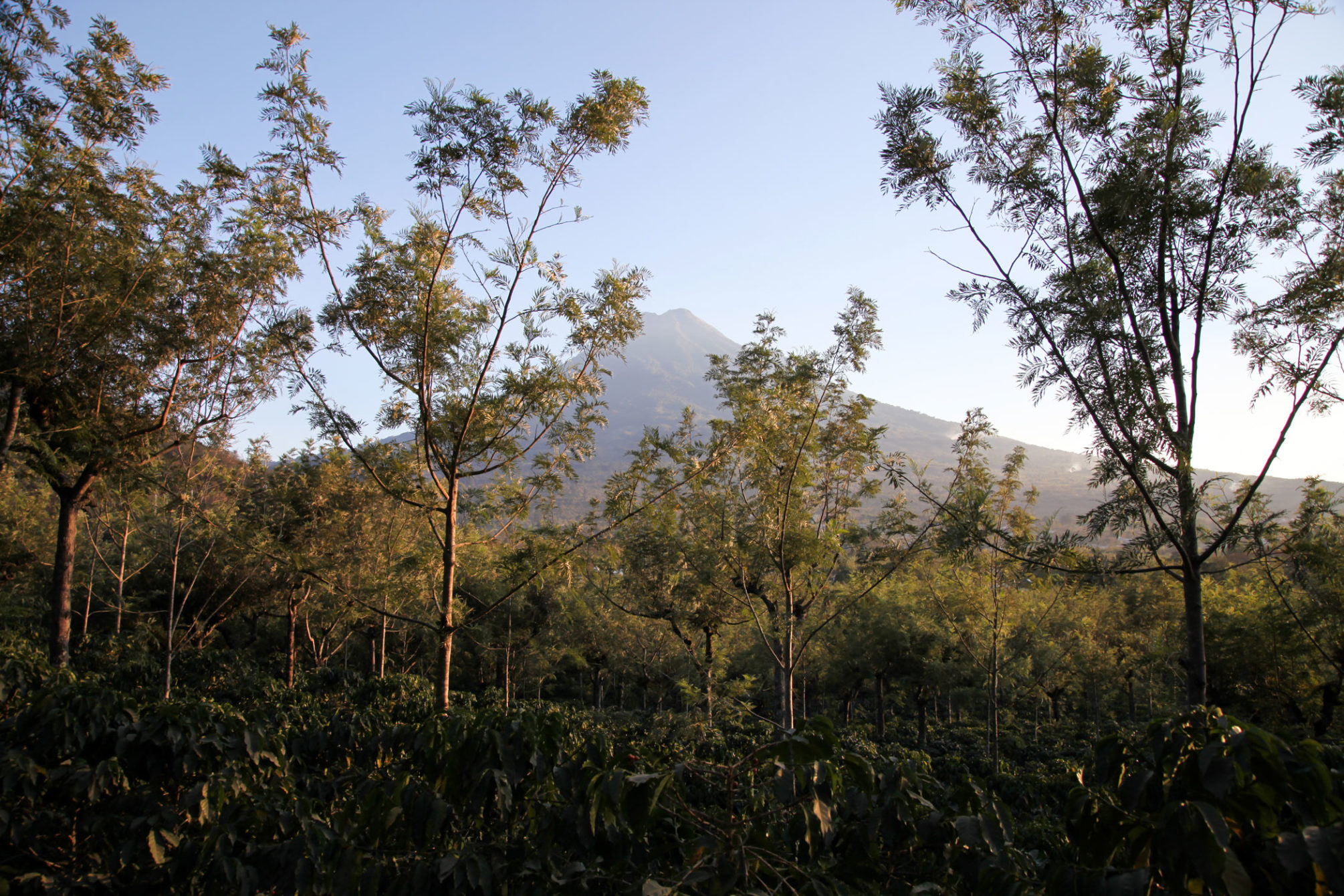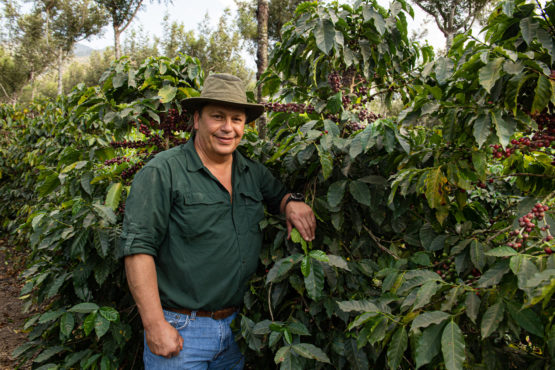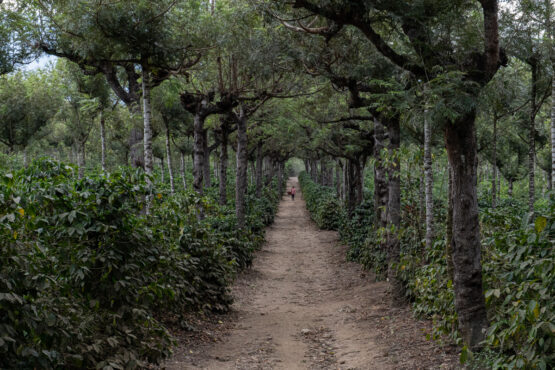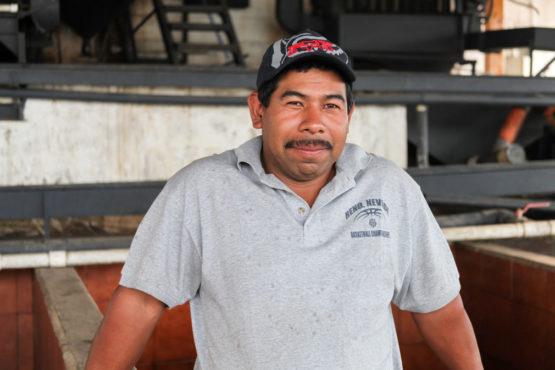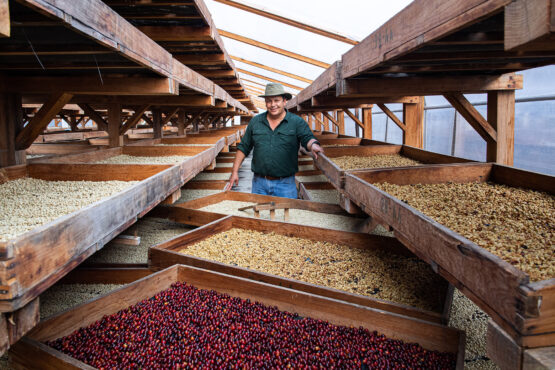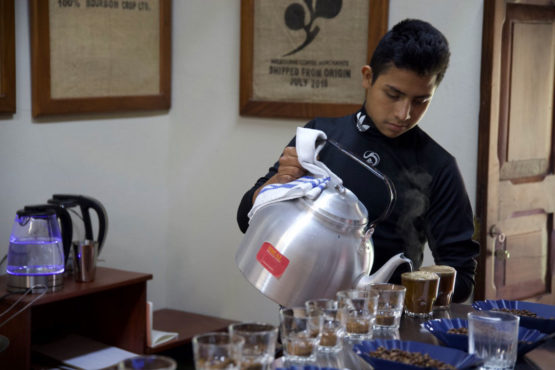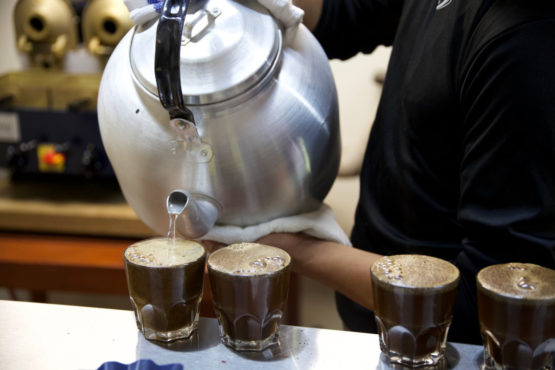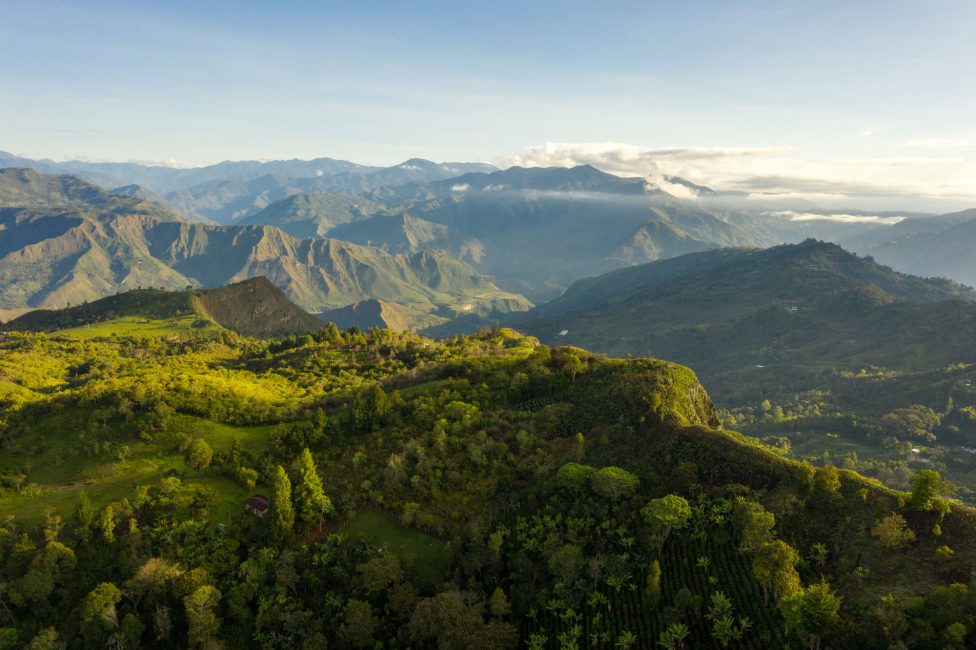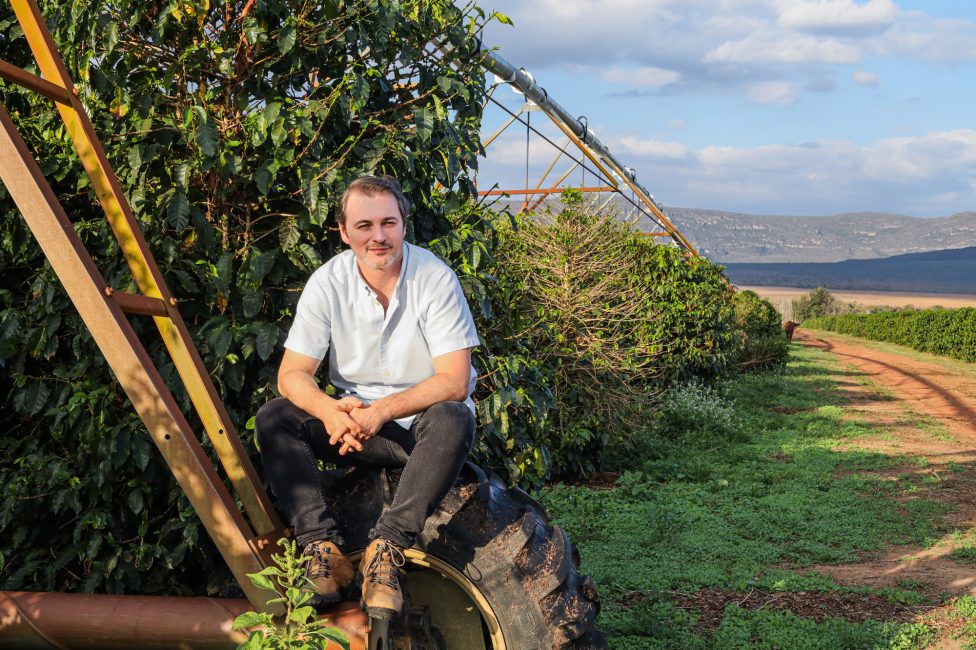San Agustín
Mandarin acidity, golden sultana, and dark chocolate. Good intensity and balance, with walnut and brown sugar on the finish.
San Agustín is located in the eastern slopes of the Antigua Valley, at an elevation of 1,600–1,880 meters above sea level.
This farm is originally part of Finca Cabrejo, a very old and renowned farm in the Antigua area. The owners ran the farm for many years until a poor C-price and frosts affected the plantation and forced them to abandon it. In 2005, they made a long-term deal of renting the farm to Ricardo Zelaya, a well-respected and very successful producer who had other farms in the region.
When Ricardo took over the farm, the old plantation was only four hectares in size, and badly damaged and in no condition to recover and produce good yields. He set about quickly renovating the plantation, replanting these four hectares and planting an additional twenty-one new hectares.
Ricardo Zelaya is a member of the fourth generation of the Zelaya family. Since 1986, he has been committed to innovating and adapting in order to ensure excellence in every step of the coffee production chain. Ricardo, along with his valued team, is devoted to producing the highest quality coffee in the world and continuously invests in and improves his farms’ social and environmental responsibilities.
In addition to San Agustín, Ricardo manages three other coffee farms in Antigua; Santa Clara, Puerta Verde, and Jauja. He also owns and manages a farm called Carrizal in New Oriente. His farms are scrupulously well-managed—from the careful selection of varietals planted and attention given to plant nutrition and pruning, to the close supervision of the wet and dry mills. Both mills are located at Ricardo’s Santa Clara Estate (only just down the road from San Agustín), giving him complete control over quality from picking through to export.
Ricardo is passionate about sustainability. Coffee on his farms is shade-grown, which protects the plants from direct sunlight, maintains soil health, and provides an important habitat for birds and insect life. The family’s mills are also eco-friendly and feature sedimentation tanks that prevent pollution of the local river systems. All of the pulp from the mills is composted and used as an organic fertiliser for the farm. In addition, parchment from the dry mill is used for fuel to reduce the reliance on wood.
Ricardo also has a big heart – leading with passion, care, positivity and a sense of humour. He has a loyal and dedicated team, and many of his staff have worked on the farm and with the family for generations. One of his longest-standing staff members is the Farm Administrator, Marcos Rompiche, who has worked for the Zelayas for over two decades and is the third generation in his family to work the land. Production is overseen by Israel Yool, who has over fifteen years experience working for the family and is the second generation to do so. Including Marcos and Israel, the farm provides work for sixty permanent employees year-round, all of whom help Ricardo manage the processing and production of his farms. The family hires an additional 250–400 individuals during the harvest to help pick and process the coffee.
Ricardo recognises that his people are his most valuable asset “80% of the cost of coffee is labour—you need to depend on a lot of people. I think that if your people are earning a good salary, if they have good conditions and if they’re happy, then they’ll do a better job, and with more will.”
PROCESSING
Every cherry at San Agustín is selectively hand-picked and sorted before being inspected and approved by the foreman at the wet mill, and the fruit is pulped and fermented for 14–22 hours in tiled tanks.
The beans are then washed to remove any remaining pulp and carefully dried on patios and then raised beds, with a greenhouse-style enclosed canopy, which features walls that can be lifted up and down to maximise airflow and control temperature and humidity. This method of drying allows Ricardo more control over the process, enabling him to ensure the coffee is dried slowly and evenly.
Once dry, the coffee is stored in parchment until it is ready for export. It is then milled at Ricardo’s dry mill which is located at Santa Clara Estate. The management of this meticulously run mill is overseen by a talented team who carefully monitor every stage of milling to ensure high-quality expectations are met. Throughout the process, Ricardo also ensures that all organic by-products are recycled and reused.
Ricardo recently built a dedicated lab on his property and has a QC team focused on analysing every single lot produced on the farm. Balmer Aragón heads up the QC program and is in charge of all of the roasting and cupping. Each day lot is cupped and scored prior to blending and the findings are used to inform improvements in harvesting and processing.
SOCIAL INITIATIVES
In recent years, Ricardo and his daughters, Bel and Katia, have implemented several social initiatives to benefit all their employees, with the objective of supporting them and their families to improve quality of life, and gain higher job satisfaction.
Some initiatives have focused on health, with workshops for employees on basic hygiene and education around the importance of drinking filtered water. On the back of this, the Zelayas created an eco-filter finance program, where a worker would pay for half of the filter and the farm would pay out the other half.
Another initiative focused on female empowerment. All female employees or family members were welcomed to workshops where they learnt new skills like sewing, cooking, traditional candy making and jewellery making. These skills provided the women with the opportunity to create an important source of income in the coffee off-season, and also helped to build a sense of community and purpose.
There are also some long-term initiatives focused on education that have been implemented, including the Santa Clara Scholarship Fund which has been running since 2011. This fund provides financial support for some of the children of the farm’s employees. Many children in Guatemala are forced to stop going to school early because the school fees, and associated costs like school uniforms, are not affordable for their families. Currently, there are thirty student recipients of the Santa Clara Scholarship fund. These students receive money for tuition fees, uniforms and schoolbooks, as well as the opportunity to participate in weekly workshops that focus on important educational and leadership skills.
In addition, Ricardo set up a ‘Coffee High School’ in 2019, for people interested in pursuing a career in coffee. The two-year course (which is run on the weekends so students can maintain their full-time jobs) required students to have completed studies up to the equivalent of Year 10 in Australia, however, there is no age limit for the students. Topics covered in the course cover everything from pruning and picking, through to wet and dry processing, and cupping. “This program is aimed at ensuring we are training the next generation of coffee professionals,” Ricardo explained.
WHY WE LOVE IT
We have been fortunate enough to have been with Ricardo Zelaya since 2008, and we feel incredibly lucky to work with such a remarkable family and coffee.
One of our favourite moments when visiting the farm was seeing an amazing video that the staff had produced as a surprise for Ricardo and his family to show their gratitude. It was presented at their Christmas party (an annual event to which all of the workers and families are invited to dance and eat lots of yummy food). You can watch here (we can’t encourage you to watch this enough—it will make you smile!)
